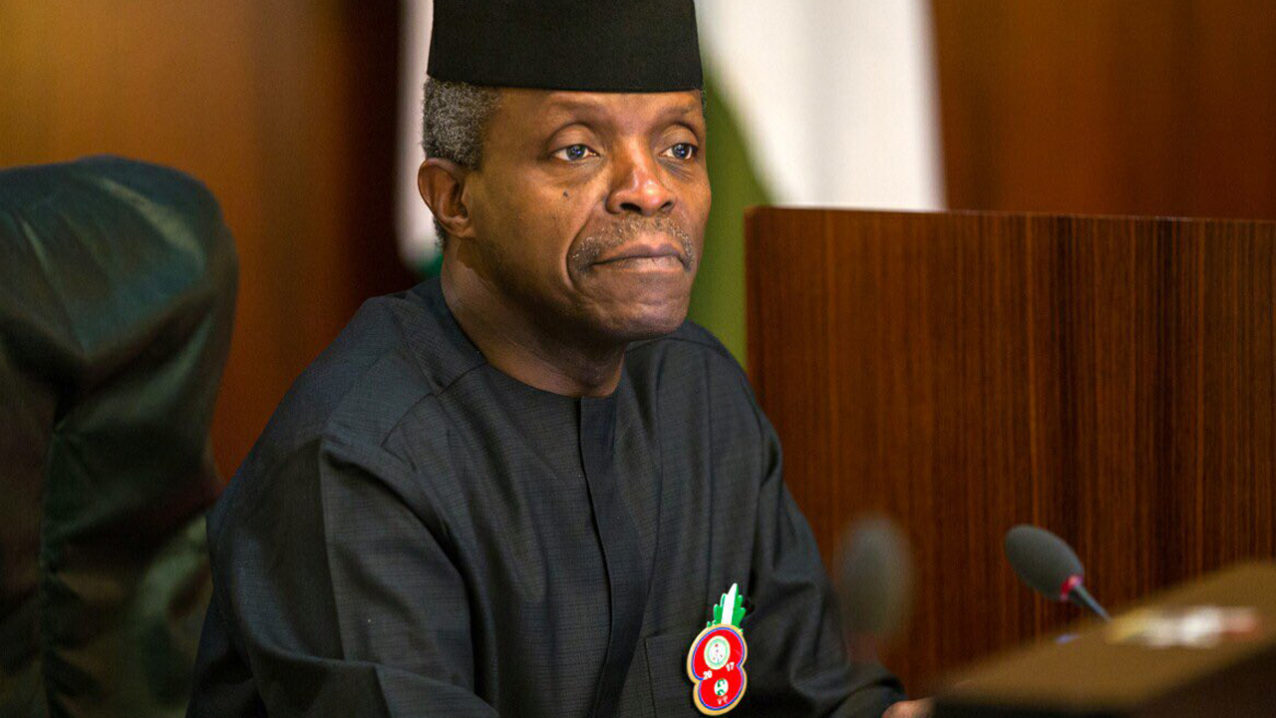Vice President Yemi Osinbajo says COVID-19 pandemic is possibly the worst economic crisis the world has seen.
Osinbajo said this on Tuesday in Abuja at a Webinar organised by the Commonwealth Enterprise and Investment Council (CWEIC) with its focus on Nigeria.
- Nigeria can turn COVID-19 pandemic to economic victory — Osinbajo
- COVID-19 pandemic, opportunity to reset our critical sectors – Osinbajo
The vice president said Nigeria had decided to seize the opportunity of the pandemic to reset the economy amidst worldwide economic challenges.
He said “President Muhammadu Buhari said the country could seize the opportunity to reset our economy in a way that might have been impossible had there not been a worldwide economic crash that came with the COVID-19 pandemic and its attendant consequences.
According to him, “it seemed the sun was beginning to shine quite brightly after the years of recession and its immediate aftermath. Then came COVID-19 possibly the worst economic crisis the world has seen. For us in Nigeria, it was a perfect storm for oil prices, Russia and Saudi Arabia choosing that very moment for a price war. Then the inevitable lockdowns resulting in closure of businesses, our huge informal economy all but crashed and Government revenues fell too by over 40%.
“But the silver linings were perhaps bolder in the dark clouds.
“I was asked to chair an inter-ministerial team to develop our Economic Sustainability Plan. A plan which we hope will, in the next 12 months or so, avoid a deep and prolonged recession by supporting businesses and households, but perhaps more importantly, addressing long-term structural vulnerabilities
“Taking into account our economic size and fiscal limitations, we have put together a stimulus package of N2.3trillion, which is just over 1.5% of national income. If other factors like the price of oil and length of the COVID-19 pandemic do not worsen further, these interventions should ameliorate the situation with a mild recession expected of minus 0.59%.”
He added: “We have taken the opportunity to remove petrol subsidies and to insist that power distribution companies must engage with customers to ensure that new tariffs are based only on improved power supply. We are talking of service reflective tariffs.
“The Central Bank of Nigeria is also committing to moving to a unified exchange rate, to improve certainty in trade and investment. In addition to using fiscal and monetary measures to stimulate the economy, our main objectives are to retain and create jobs, to assist vulnerable people, support businesses and undertake infrastructural investments. I am happy to see from the research that jobs, retaining jobs and creating more opportunities tops Nigerians’ priorities when it comes to what they believe the COVID-19 response should be like….
“It is not news of course that the COVID-19 pandemic has distorted international trade with disruption of global value chains, export bans, and protectionist policies. On our part, Nigeria remains committed to the multilateral trade system but we will ensure that our economy is not subjected to unfair trade practices.”
Other speakers at the international webinar include Lord Marland of Odstock, the Chairman of the CWEIC, Sir Lynton Crosby, Chief Executive Officer C|T Group and the Industry, Trade and Investment Minister, Otunba Adeniyi Adebayo.

 Join Daily Trust WhatsApp Community For Quick Access To News and Happenings Around You.
Join Daily Trust WhatsApp Community For Quick Access To News and Happenings Around You.


